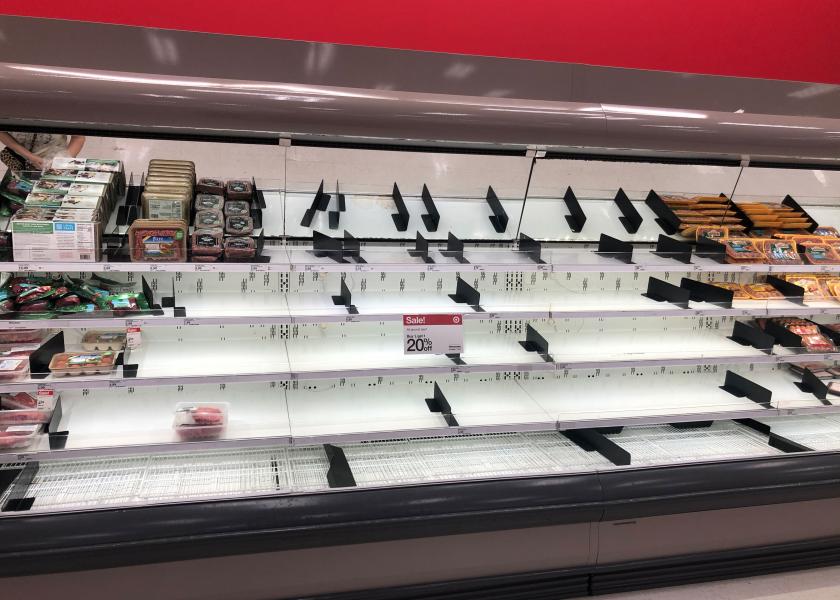Economist Predicts Pork Shortage to Hit California January 1

Is California prepared for a pork shortage to hit on Jan. 1? With nearly 99.8% of pork consumed in California coming from out of state, experts say Proposition 12’s impact will be far greater than many realize.
Many discussions in the pork industry have centered around the economic impact to the entire country. California economist and former Secretary of California Technology, Trade and Commerce Agency Lon Hatamiya released a white paper specifically on the impacts of Proposition 12 on California consumers.
He explored pork price changes against an anticipated 50% reduction of pork supply, as estimated by independent market expert Rabobank.
“Market access restrictions from Proposition 12 will further limit available supply into California, thereby driving up pork prices for all consumers,” Hatamiya said during a press conference hosted by the Food Equity Alliance on Thursday. “The negative financial burden falls largely on the diverse ethnic consumers and communities that make up California, with pork being an important source of protein for African American, Asian American, and Hispanic households, businesses, and restaurants.”
Hatamiya analyzed data from a pork pricing study conducted by Kansas State researcher Glynn Tonsor and Purdue researcher Jayson Lusk that looked at the sensitivity of consumer pork purchasing behavior relative to price changes for six pork products (loin, ribs, shoulder, breakfast sausage, dinner sausage and bacon).
In the paper, he explained that consumers will have less to spend on other items if they are required to spend more on pork, also known as “consumer welfare.”
“If a state passes a law that excludes a large volume of pork production entering the market (Prop 12 as an example), this will reduce availability to consumers – driving up price due to the lower availability of supply. For example, a 50% reduction in available bacon would result in 60% higher bacon prices in the Los Angeles market; a 50% reduction in available pork loin would result in 42% higher pork loin prices,” the paper said.
Because of higher retail prices, consumers will buy a lower volume of impacted products at a higher price. Hatamiya said this clearly will result in economic harm and negatively impact consumer welfare.
For example, he said a 50% retail pork price increase would result in consumer loss of $224.5 million annually in Los Angeles; similarly, a $47.5 million consumer loss in Sacramento; $46.5 million consumer loss in San Diego; and $84.5 million consumer loss in San Francisco/Oakland.
“The hasty implementation of Proposition 12 greatly impacts the entire food supply chain – from farmers and food processors to retailers, grocers, restaurants and consumers,” California Retailers Association President Rachel Michelin said in the press conference. “It will create food insecurity and increase food prices on small businesses and families who cannot afford it.”
California Hispanic Chambers of Commerce President and CEO Julian Canete said implementing these regulations without allowing the food supply chain adequate time to comply will dramatically harm California’s families, restaurants, grocers and small businesses with potential pork shortages and increased prices.
“Californians and small businesses primarily owned by people of color will be heavily impacted as pork makes up a main staple in a variety of ethnic dishes, snacks and other food products,” Canete said.
California businesses that rely on a supply of pork will potentially suffer significant consequences due to harried implementation of regulations, he added.
“Imagine going to the grocery store and finding the price of bacon, pork chops or ham has skyrocketed. Or you’re ordering carry out from a Latino or Asian restaurant and your favorite pork dish has been removed from the menu. These scenarios are a possibility in California with the pending implementation of Proposition 12,” Canete said.
More from Farm Journal's PORK:
Pork Industry Braces for Catastrophic Costs to Implement Proposition 12
Misguided Ruling Could Upend the Lives of Many Hog Farmers, Sorenson Says







